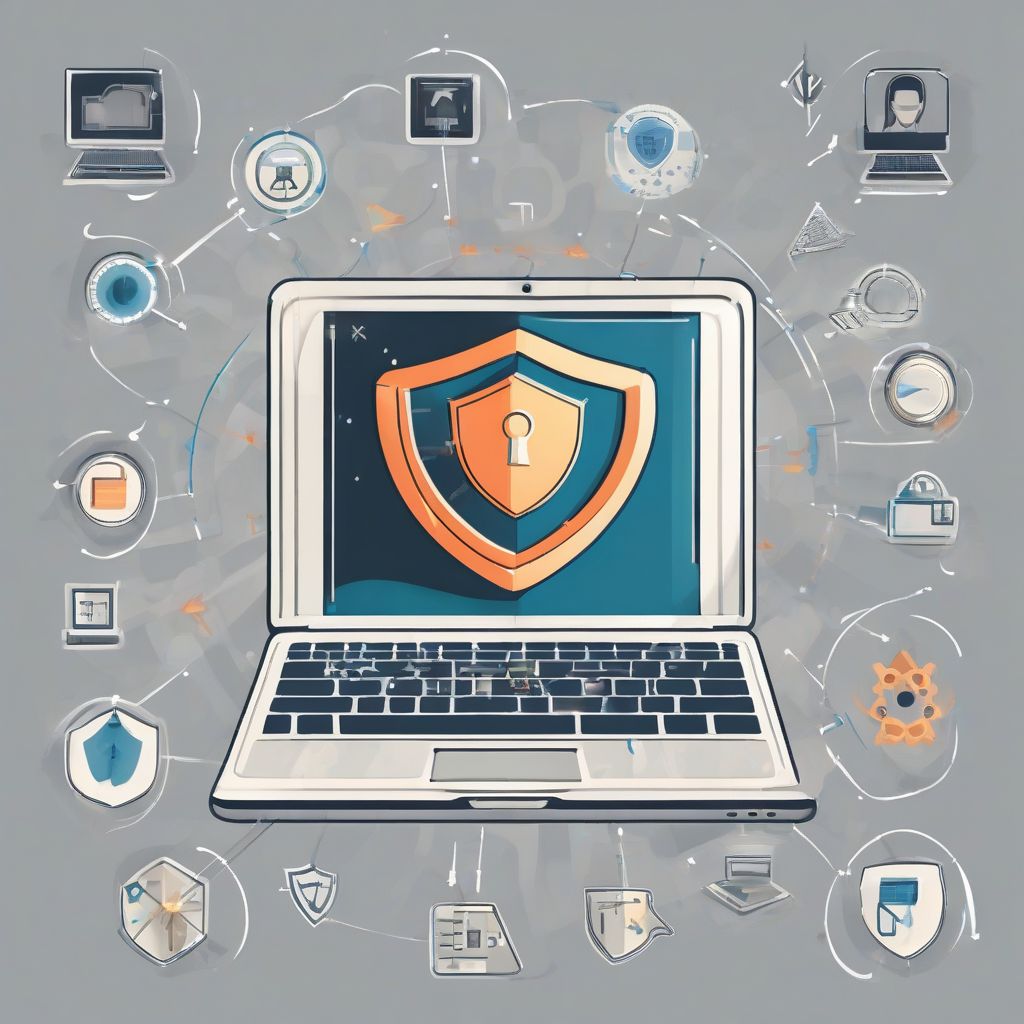Imagine this: you’ve poured your heart and soul into building your ecommerce business. You’ve meticulously curated products, designed a user-friendly website, and implemented effective marketing strategies. Everything seems to be thriving, and then it hits – a cyberattack. Suddenly, sensitive customer data is compromised, your website crashes, and your reputation takes a nosedive. This nightmare scenario is a stark reminder of why robust cybersecurity tools are non-negotiable for ecommerce businesses of all sizes.
Why are Cybersecurity Tools Essential for Ecommerce?
Ecommerce businesses, by their very nature, face a heightened risk of cyberattacks. Here’s why:
- Valuable Data: Ecommerce platforms store a treasure trove of sensitive information, including customer names, addresses, credit card details, and browsing history. This data is highly sought after by cybercriminals who can exploit it for financial gain or identity theft.
- Transaction Volumes: The constant flow of transactions on ecommerce websites creates multiple entry points for hackers. Each transaction represents an opportunity for malicious actors to intercept data or inject malware.
- Website Vulnerabilities: Security flaws in website software, plugins, or themes can be exploited by attackers to gain unauthorized access. Outdated software versions are particularly vulnerable to known exploits.
 Ecommerce Security Breach
Ecommerce Security Breach
Key Cybersecurity Tools for Ecommerce Businesses
Fortunately, a wide array of cybersecurity tools can help safeguard your ecommerce business. Let’s delve into some of the most crucial ones:
1. Firewalls: Your First Line of Defense
Think of a firewall as your business’s security guard. It acts as a barrier between your website and the outside world, filtering incoming and outgoing network traffic. Firewalls block unauthorized access attempts, preventing malicious actors from reaching your valuable data and systems.
2. Secure Sockets Layer (SSL) Certificates: Encrypting Sensitive Information
Ever noticed the little padlock icon in your browser’s address bar when visiting a website? That’s an SSL certificate in action. SSL certificates encrypt the data transmitted between a user’s browser and your website, ensuring that sensitive information like credit card numbers and passwords remain secure during online transactions.
3. Intrusion Detection and Prevention Systems (IDPS): Proactive Security Measures
IDPS act as your 24/7 security team. These systems continuously monitor network traffic for suspicious activity, identifying and blocking potential threats in real-time. IDPS can detect malware, SQL injections, cross-site scripting (XSS) attempts, and other malicious activities, alerting you to potential breaches and helping prevent damage.
4. Virtual Private Networks (VPNs): Secure Remote Access
If your employees access your ecommerce platform remotely, a VPN is essential. VPNs create a secure, encrypted connection over a public network, protecting sensitive data from eavesdropping and cyberattacks. This is crucial for employees working from home, using public Wi-Fi, or accessing business networks on the go.
 VPN Protecting Data
VPN Protecting Data
5. Anti-Malware Software: Shielding Against Malicious Software
Malware comes in many forms, including viruses, worms, ransomware, and spyware. It can wreak havoc on your ecommerce business, stealing data, corrupting files, or even taking down your entire website. Robust anti-malware software is crucial for detecting, removing, and preventing malware infections on all devices that access your ecommerce platform.
6. Data Backup and Recovery Solutions: Your Safety Net
Even with the best cybersecurity measures, breaches can still occur. That’s where data backup and recovery solutions come in. Regularly backing up your website data and customer information ensures that you can restore operations quickly and minimize downtime in the event of a cyberattack, hardware failure, or natural disaster.
Choosing the Right Cybersecurity Tools: Factors to Consider
Selecting the appropriate cybersecurity tools depends on various factors, including:
- Business Size and Complexity: A small ecommerce business may have different needs than a large enterprise with complex systems and a vast customer base.
- Budget: Cybersecurity tools range in price, from free open-source solutions to enterprise-grade platforms with subscription fees. Assess your budget and prioritize tools that offer the most significant protection for your specific needs.
- Technical Expertise: Some cybersecurity tools require specialized knowledge to implement and manage effectively. Consider your team’s technical skills or whether you need to outsource cybersecurity management to a specialized provider.
- Specific Threats: The types of cyberattacks you’re most vulnerable to will also influence your tool selection. Research common threats in your industry and choose tools designed to address those risks.
Beyond Tools: Cultivating a Cybersecurity Culture
While cybersecurity tools are vital, they are most effective when complemented by a strong cybersecurity culture within your organization. This involves:
- Employee Training: Educate your employees about common cyber threats, best practices for password security, phishing awareness, and safe browsing habits. Human error is a significant factor in many cyberattacks, making employee training a crucial line of defense.
- Strong Passwords and Multi-Factor Authentication (MFA): Enforce strong password policies, requiring employees to use unique, complex passwords for all business accounts. Implementing MFA adds an extra layer of security, requiring users to provide two or more forms of authentication to access sensitive systems.
- Regular Software Updates: Keep all software, plugins, and themes on your ecommerce platform updated to the latest versions. Security patches are frequently released to address vulnerabilities, so staying updated is crucial for minimizing risks.
- Data Encryption: Encrypt sensitive data both in transit and at rest. Data encryption renders stolen data unreadable to unauthorized individuals, mitigating the impact of a potential breach.
[amazon bestseller=”cybersecurity-for-dummies”]
Conclusion: Investing in Peace of Mind
In today’s digitally driven world, cybersecurity is not merely an IT issue – it’s a business imperative. By investing in the right cybersecurity tools and fostering a culture of security awareness, ecommerce businesses can protect their valuable data, preserve their reputation, and build trust with customers. Remember, the cost of preventing a cyberattack is far less than the potential financial and reputational damage it can inflict.
Take proactive steps to safeguard your ecommerce business today. Your future success may depend on it.
What steps are you taking to strengthen your ecommerce business’s cybersecurity? Share your thoughts and experiences in the comments below!
